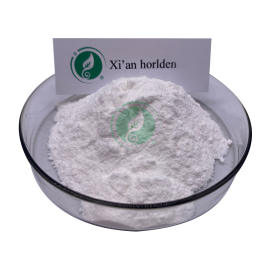-
Categories
-
Pharmaceutical Intermediates
-
Active Pharmaceutical Ingredients
-
Food Additives
- Industrial Coatings
- Agrochemicals
- Dyes and Pigments
- Surfactant
- Flavors and Fragrances
- Chemical Reagents
- Catalyst and Auxiliary
- Natural Products
- Inorganic Chemistry
-
Organic Chemistry
-
Biochemical Engineering
- Analytical Chemistry
- Cosmetic Ingredient
-
Pharmaceutical Intermediates
Promotion
ECHEMI Mall
Wholesale
Weekly Price
Exhibition
News
-
Trade Service
In recent years, with the rapid development of China's industrialization, urbanization and the overlay of the aging of the population, nearly 23.2% of adults suffer from hypertension. The World Health Organization has made it clear that sodium and potassium in the diet are closely related to the incidence of hypertension.
there are some differences in the eating habits, cooking, social environment and food in the north and south of China. However, there is little longitudinal study on the relationship between dietary sodium, potassium and sodium potassium in north-south China and the risk of hypertension.
Ding Gangqiang, director of nutrition and health at the China Center for Disease Control and Prevention, and others published an article in the journal Nutrients in January 2020, which focused on the relationship between dietary sodium, potassium and potassium ratios in north and south China and the risk of blood pressure levels and hypertension.
used data from the China Health and Nutrition Survey for 2009, 2011 and 2015. Adults 18 years of age and older who participated in at least two rounds of the survey and had complete demographic information, dietary records, and physical measurement data were selected as study subjects, excluding pregnant and lactating women who were diagnosed with hypertension when they entered the group. Finally, a total of 6,705 samples (North: 2610; South: 4095) were included in the analysis. The dietary intake data and household condiment weighing data were collected by using the 24-hour diet review method for 3 consecutive days, and the nutrient intake of the study subjects was calculated in conjunction with the food composition table.
study found that the baseline dietary sodium intake was higher in the North and South, while the dietary potassium intake was lower, and there were significant differences between dietary sodium and potassium intake in the two regions. After multilinear regression analysis and adjustment of mixed factors, it was found that dietary potassium intake was negatively related to blood pressure and heart edictation pressure, which could reduce the risk of hypertension, and the intake of sodium and potassium ratio was positively related to the increase of heart lysopressure pressure, and both increased the risk of hypertension.
Only dietary potassium intake was negatively associated with heart lysate pressure, which reduced the risk of hypertension, while dietary sodium and potassium ratio intake were not significantly associated with blood pressure and heart edictation pressure, and only the three parts of dietary sodium intake were positively associated with the risk of hypertension, and the intake of sodium-potassium ratio was not significantly associated with the risk of hypertension.
U.S. Health and Nutrition Survey also showed significant regional differences in the relationship between dietary sodium and potassium and blood pressure. Domestic studies show that the blood pressure response of sodium and potassium intake in diet is hereditary, while the salt sensitivity of blood pressure in different regions is different. Through this study, it was found that the intake of sodium and potassium in the diet in north and south China exceeded and did not reach the recommended intake of WHO, respectively, and there were significant differences in the intake of sodium and potassium in the diet in the north and south of China. In addition, the dietary sodium, potassium and sodium-potassium ratio in the north-south population showed significant differences in blood pressure and heart lysopressure levels, and the risk of dietary sodium and sodium-potassium ratio to hypertension was also different in the north and south. Studies suggest that these possible regional differences should be taken into account when preventing and treating hypertension, dietary interventions, and dietary recommendations.
.







